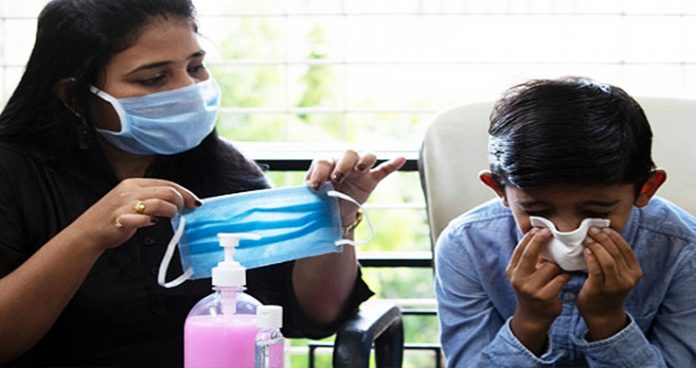The bulk of Indians have accepted feeling symptoms like fever, tiredness, dry cough, cold, nasal congestion, and running nose prompting them to go for the Covid-19 test.
IANS-CVoter Covid tracker survey reveals that almost 8.5 percent of Indians ran a high fever, 6.5 percent complained of dry cough, 6.2 percent of tiredness, 5 percent of body pain and 4.9 percent said they had cold, nasal congestion, and running nose.
A total of 3.4 percent of Indians said they faced difficulty in breathing while 3.5 percent complained about sore throat or pain in the throat.
The majority of the people approached in the survey accepted that their neighbors have these symptoms, followed by those in their household and a few who said they were themselves posing similar health issues.
ALSO READ:-Majority Indians say their lives & country both in poor state
A total of 8.4 percent of Indians said their neighbors are facing flue-like symptoms, 3.4 percent accepted that it was in their household while 2.8 percent said they are facing the same issues.
A total of 6,872 people across the country were asked these questions during the survey conducted in the past one week.
The survey comes when India is passing through the second wave of the Covid-19 virus which so far infected 2,78,94,800 people with 21,14,508 active cases and 3,25,972 deaths.
To curb the spread of the deadly pandemic, the central government has advised going for a Covid-19 test if fever, sore throat, body pain, breathlessness, running nose, nasal congestion, or any flue-like symptoms is a witness in any individual with stress on to keep themselves isolated.
Asked “How many days of ration, medicine or money for ration or medicine is available for your family in your house”, 24 percent said it is available for a month, 22.4 percent informed about its availability for a week and 15.7 percent accepted it will be enough for only less than a week.
A total of 19.3 percent said it will be available for more than a month while 15.1 percent said it is enough for two weeks. While 3.4 percent said these items are available for them for three weeks.
SOURCE:IANS







